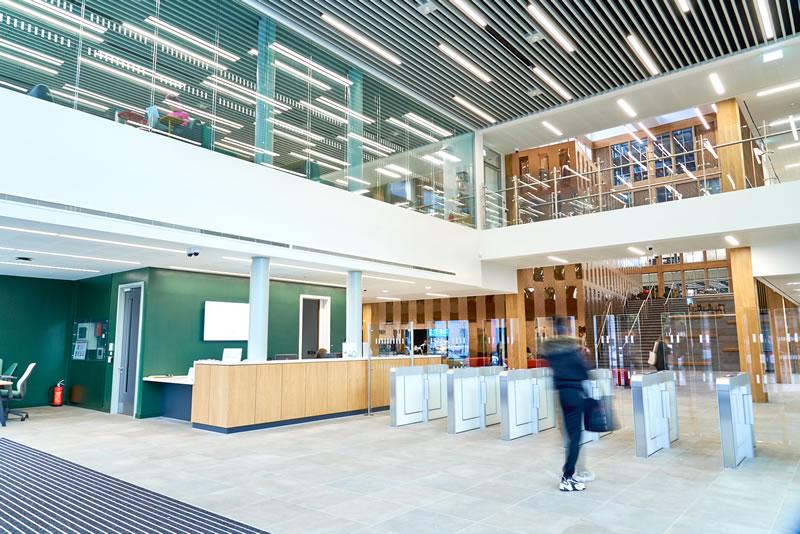
What might the Conservatives' election victory
Our take on what 2020 could bring for FE, apprenticeships and adult learning.
By Gary Hughes, Group Marketing and External Relations Director, and Emer Scott, Group Head of Public Affairs
What might the Conservatives' election victory mean for the UK’s education and skills sector?
The Conservative landslide general election victory means we have a strong majority government for the first time since 2005. Effectively, this means we now have a Government that will serve a full term and has sufficient support to implement its agendas.
The Government’s immediate priority is to deliver on its election promise of getting the EU Withdrawal Agreement Bill approved and enacted by 31st January 2020, as a prelude to negotiating long-term trade deals.
However, Boris Johnson is well aware that voters in newly-Conservative constituencies such as Leigh and Heywood & Middleton won’t be satisfied with that alone. They will expect policies and spending that make their lives and communities better. Real investment in skills, job opportunities and local economic growth are essential to that.
Today’s Queen’s Speech (19th December 2019) recognised as much with promises of investment in infrastructure, science research and skills “to unleash productivity and improve daily life for communities across the country”. It also pledged to “give communities more control over how investment is spent so that they can decide what is best for them”.
So what does that mean in practice for education and skills?
Funding further education
The speech mentioned plans for a £3bn National Skills Fund over the next Parliament (c£600m a year) and the background briefing notes reiterate previous commitments including £400m additional 16-19 FE funding in 2020/21 and a £1.8bn FE capital programme. The Shared Prosperity Fund – due to replace the European Social Fund – will include £500m to give disadvantaged people skills for life
Post-18 education policy has prioritised higher education for many years and there is broad recognition that there now needs to be much greater focus on technical and vocational education. The Independent Review on Post-18 Education and Funding, chaired by Sir Philip Augar, starkly highlighted many of the imbalances in the report, published in May 2019. The new Government has promised to consider the Augar review panel’s recommendations; we await their responses in 2020.
Policy developments
The Queen’s Speech also confirmed plans for a further eight Institutes of Technology – higher technical collaborations between industry, FE and universities – in addition to the 12 already being developed.
Early 2020 is likely to bring the next phase of consultation on the proposed reform of post-16 qualifications at level 3 and below, as well as a kite-marking scheme to promote higher technical qualifications.
While September’s spending round brought additional 16-18 further education funding, there was little additional on offer for adult learners, with no direct reference in the speech. The Conservative manifesto did promise to invest in local adult education. This is urgently needed to address skills gaps and enable people to upskill and retrain, and the National Retraining Scheme is still in its infancy with tight criteria. Adult education and skills have to be a key priority for the new Government.
Apprenticeships Reform
Similarly, consensus around the need for apprenticeship levy reform must translate into action. There was nothing about the levy in the Queen’s Speech and the Conservative manifesto also said little, apart from they would look at how it could be improved. That could mean consultation during 2020 to seek views on what reforms would be most effective.
Justice Sector
Plans for a new national prison education service were announced in the party’s manifesto, with a focus on improving employment opportunities for ex-offenders. There was little detail on the new service’s remit – and it was not mentioned in the Queen’s Speech – but it is likely to build on the Prison Education Framework (PEF) and could mean greater central control to ensure consistency and quality in provision under PEF contracts, and discretionary commissioning by prison governors.
The Conservatives’ ‘tough on crime’ campaign messages resonated strongly with voters in communities affected by violence, burglaries, antisocial behaviour and so on. Current plans to expand the prison estate and reform probation services are set to continue. Victims of crime are potentially likely to have greater input into parole decisions.
Alongside this, there is an urgent need to reduce reoffending. The Government sees employments, skills and education for offenders’ rehabilitation as key enablers, together with improved probation services and making sure fundamentals are in place upon release from prison. Could that mean an even greater focus on skills and employment when assessing prison education services?
Looking forward
So what else are we likely to see? While Brexit and post-Brexit trade deals will continue to feature strongly, the Prime Minister will have a much more ambitious agenda than just delivering our exit from the EU. February is expected to bring a major ministerial reshuffle, a Budget this spring and we are also expecting completion of the Comprehensive Spending Review.
Between now and next summer, we will get a much clearer picture of where the new Government’s priorities really lie and how committed they are to technical education, skills and regional growth.








